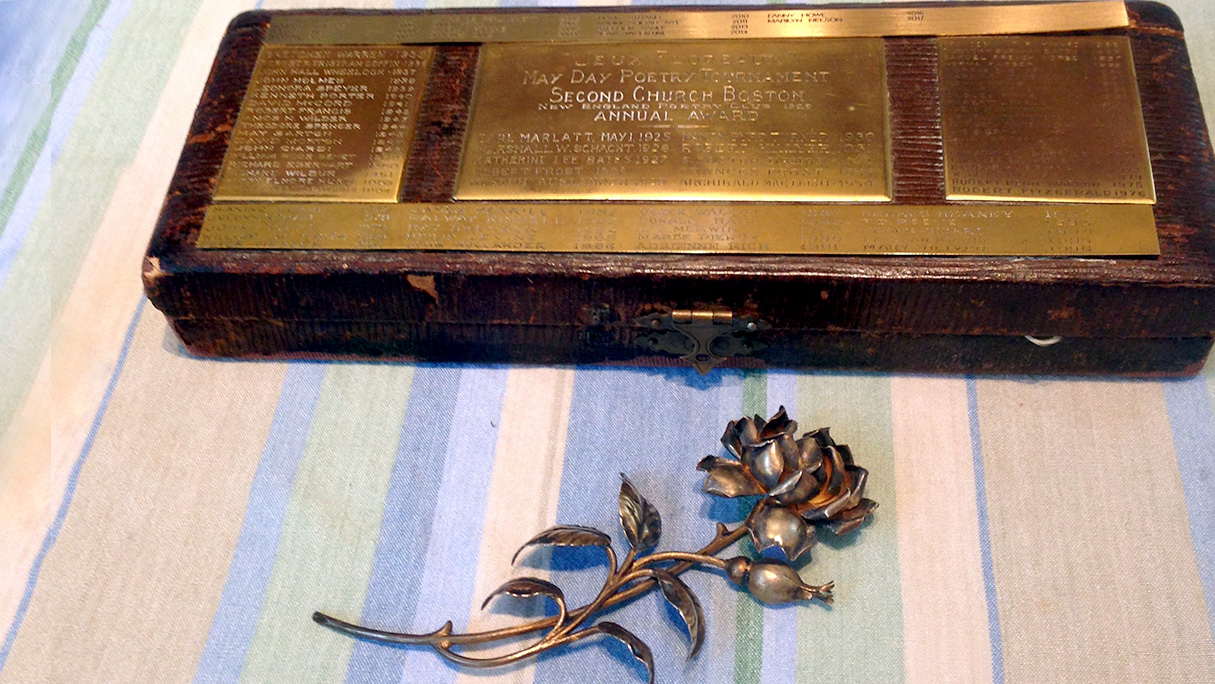2024 Golden Rose Award Winner
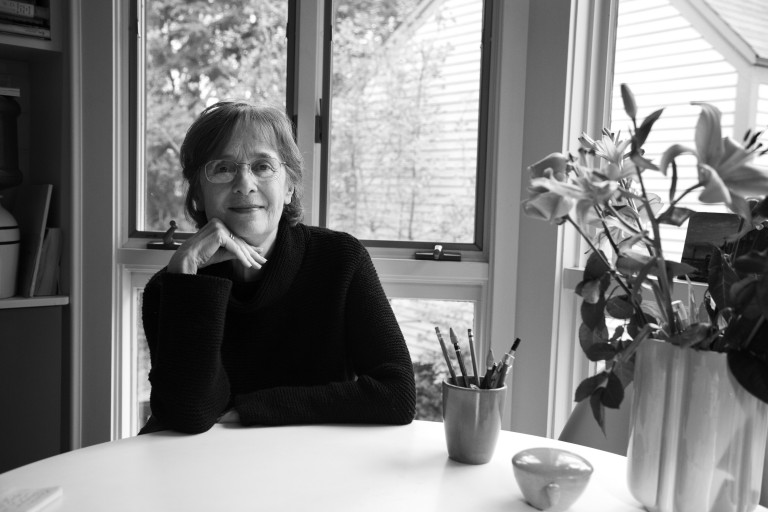
Born in Cambridge, Massachusetts, Gail Mazur grew up in Auburndale, MA. Since the 1960s she has lived primarily in Cambridge and Provincetown, with periods in New York City, Houston and Los Angeles. In 1973, she founded the Blacksmith House Poetry Series in Harvard Square which became, with its weekly readings, a center of poetry life, bringing national and international writers to read in a lively informal atmosphere.
As an activist with her late husband, the artist Michael Mazur and others Massachusetts writers and artists, she co-founded, in 1968, Artists Against Racism and the War, and later they were activists for a Nuclear Freeze. Blacksmith House presented benefit readings for, among other issues, the fight for AIDS research.
Her first collection, Nightfire (David Godine Publishers) was published in 1978, followed by The Pose of Happiness (Godine, 1986), The Common (University of Chicago , 1995); They Can’t Take That Away from Me (Chicago, 2001) finalist for the National Book Award; Zeppo’s First Wife: New and Selected Poems (Chicago, 2005), winner of The Massachusetts Book Prize and finalist for the Los Angeles Times Book Prize and the Paterson Poetry Prize; Figures in a Landscape (2011); and Forbidden City (Chicago, 2016). Land’s End: New and Selected Poems was published in 2020. Her poems have been widely anthologized, including in several Pushcart Prize Anthologies, the Best American Poetry, Robert Pinsky’s Essential Pleasures. A graduate of Smith College, she has received fellowships from the National Endowment for the Arts, the Bunting Institute of Radcliffe College, and the Radcliffe Institute. She was for 20 years Distinguished Senior Writer in Residence in Emerson College’s graduate program and now teaches in Boston University’s MFA Program in Creative Writing and at the Fine Arts Work Center in Provincetown where she has served for many years on the Writing Committee.
The Golden Rose History
The Golden Rose, one of America’s oldest literary prizes, was inaugurated in 1919 by the Second Church of Boston as a way to celebrate May Day by holding a poetry tournament in the style of the French Provençal poets who vied in “Les Jeux Floraux” in the Middle Ages. The rose was styled after the Gold Rose for which the French poets vied and which is now kept in the Cluny Museum in Paris.
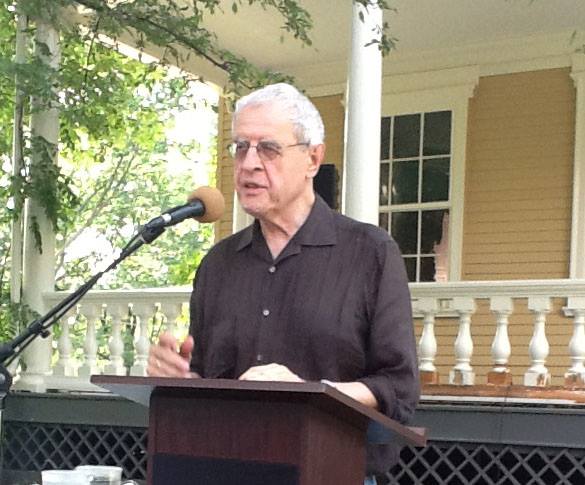
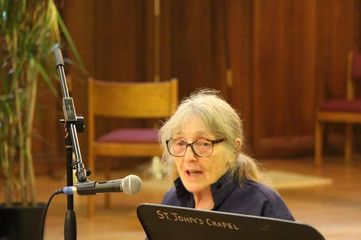
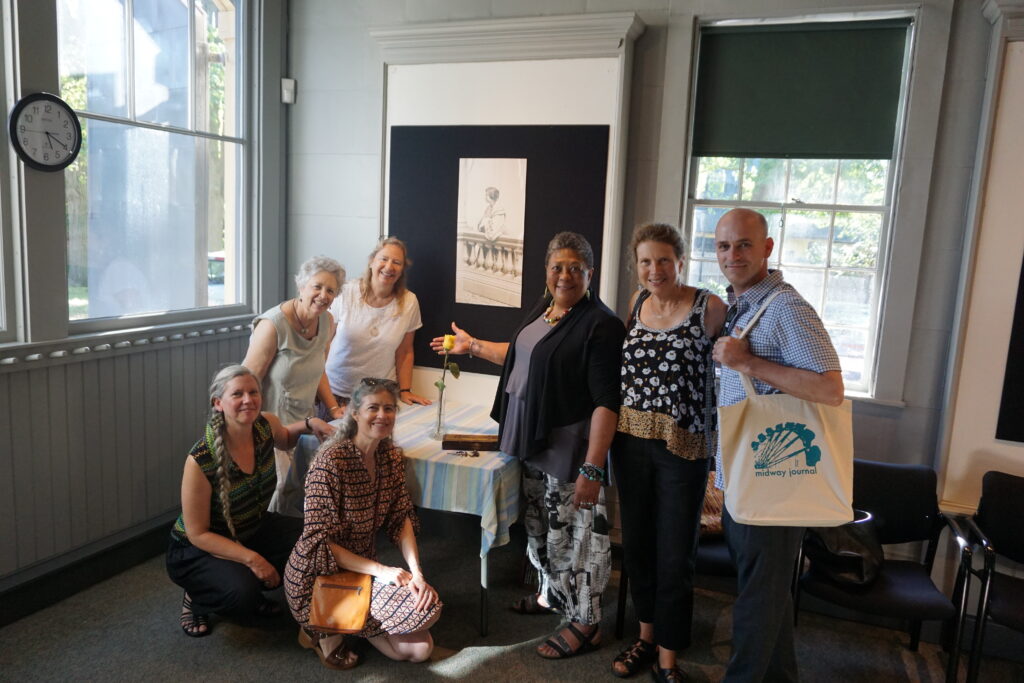
However, the tournament in Boston was not a success. Reverend Shipton, whose idea it was, decided American poets did not want a competition for the award. So, he gave the Rose to the New England Poetry Club, asking us to award it annually to a poet who had done the most for poetry in that year or during a lifetime.
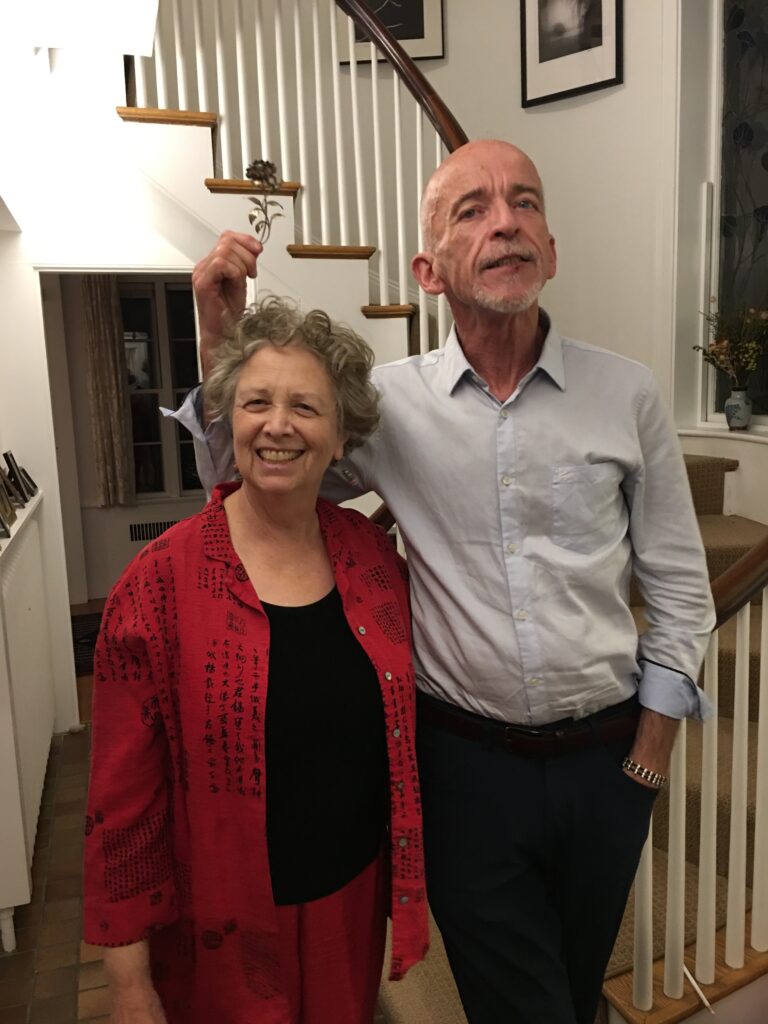
The Club continues that tradition by awarding the Rose to the poet, who by their poetry and inspiration to and encouragement of other writers, has made a significant mark on American poetry. The Club has traditionally given the prize to a poet with some ties to New England so that a public reading may take place. The name of the poet is inscribed on the box alongside the names of all the previous recipients.
Past Winners
Winners have included three Nobel Laureates: Seamus Heaney, Derek Walcott and Czeslaw Milosz, and several Pulitzer Prize recipients, all of whom received the Golden Rose before their international acclaim.
Other winners include American icons Robert Frost, Katherine Lee Bates, Archibald MacLeish, David McCord, Robert Lowell, Stanley Kunitz, X.J. Kennedy, May Sarton, Adrienne Rich, Robert Penn Warren, John Updike and Lawrence Ferlinghetti.
Golden Rose Recipients
- Earl Marlatt,
- Marshall Schact,
- Katherine Lee Bates,
- Robert Frost,
- Joseph Auslander,
- Nancy Byrd Turner,
- Robert Hillyer,
- S. Foster Damon,
- Frances Frost,
- Archibald MacLeish,
- Gretchen Warren,
- Robert Tristram Coffin,
- John Hall Wheelock,
- John Holmes,
- Leonore Speyer,
- Kenneth Porter,
- David McCord,
- Robert Francis,
- Amos Wilder,
- Theodore Spencer,
- May Sarton,
- David Morton,
- John Ciardi,
- William Rose Benet,
- Richard Eberhart,
- Richard Wilbur,
- Harry Elmore Hurd, 1960
- Harold Trowbridge Pulsifer, 1961
- Frances Minturn Howard, 1962
- Dorothy Burnham Eaton, 1963
- Samuel French Morse, 1964
- Norma Farber, 1965
- Morris Bishop, 1966
- Mark Van Doren, 1967
- Edwin Honig, 1968
- Howard Nemerov, 1969
- Dudley Fitts, 1970
- Robert Lowell, 1971
- Abbie Huston, 1972
- Evans Louis Untermeyer, 1973
- Elizabeth Coatsworth, 1974
- L.E. Sissman, 1975
- Allen Grossman, 1976
- Stanley Kunitz, 1977
- Constance Carrier, 1978
- Charles Edward Eaton, 1979
- Barbara Howes, 1980
- X.J. Kennedy, 1981
- Robert Penn Warren, 1982
- Robert Fitzgerald, 1983
- Maxine Kumin, 1984
- J.V. Cunningham, 1985
- John Updike, 1986
- William Jay Smith, 1987
- Peter Viereck, 1988
- James Merrill, 1989
- Galway Kinnell, 1990
- May Swenson, 1991
- Philip Levine, 1992
- John Hollander, 1993
- Derek Walcott, 1994
- Donald Hall, 1995
- W.S. Merwin, 1996
- Marge Piercy, 1997
- Adrienne Rich, 1998
- Seamus Heaney, 1999
- F.D. Reeve, 2000
- Frank Bidart, 2001
- Czeslaw Milosz, 2002
- Mary Oliver, 2003
- William Meredith, 2004
- Robert Creeley, 2005
- Robert Pinsky, 2006
- Sharon Olds, 2007
- Lawrence Ferlinghetti, 2008
- David Ferry, 2009
- Carolyn Forché, 2010
- Charles Simic, 2011
- Mark Strand, 2012
- Naomi Shihab Nye, 2013
- Stephen Sandy, 2014
- Jean Valentine, 2015
- Fanny Howe, 2016
- Marilyn Nelson, 2017
- Yusef Komunyakaa, 2018
- Mark Doty, 2019
- Susan Howe, 2020
- Rhina Espaillat, 2021
- Patricia Smith, 2022
- Afaa Weaver, 2023
- Gail Mazur, 2024

